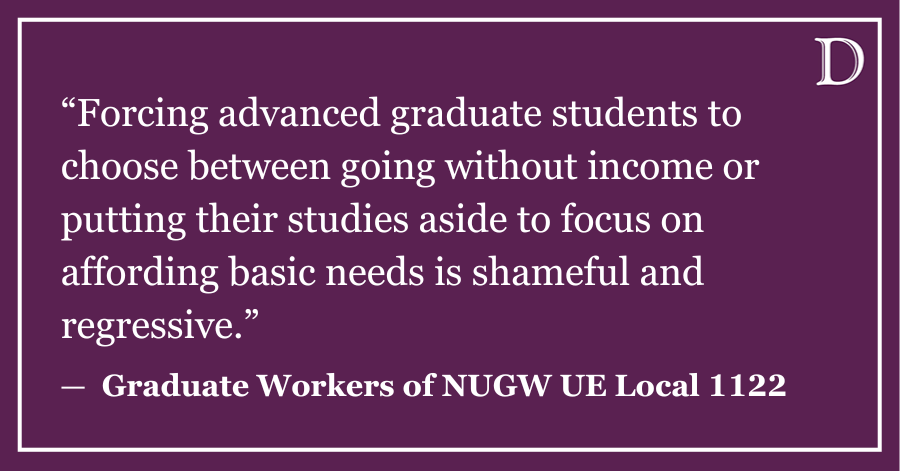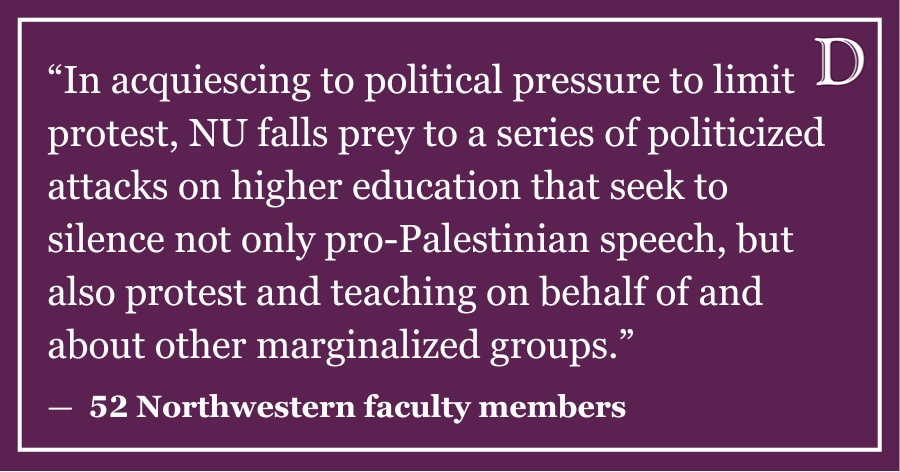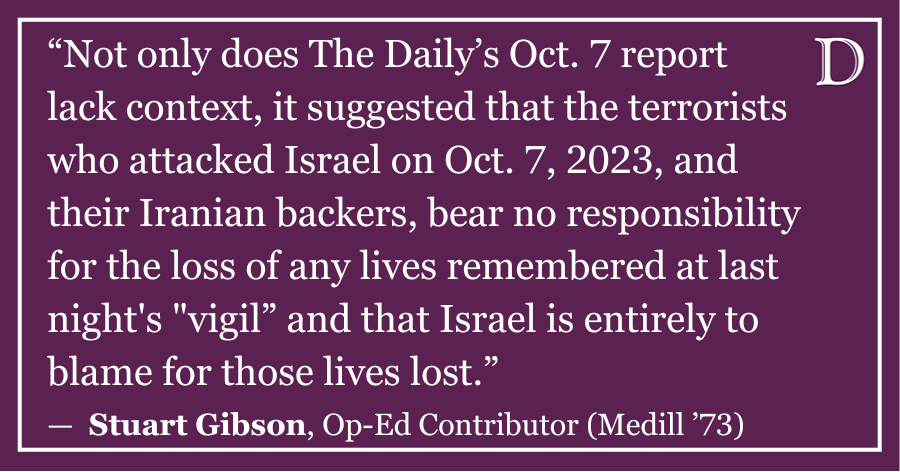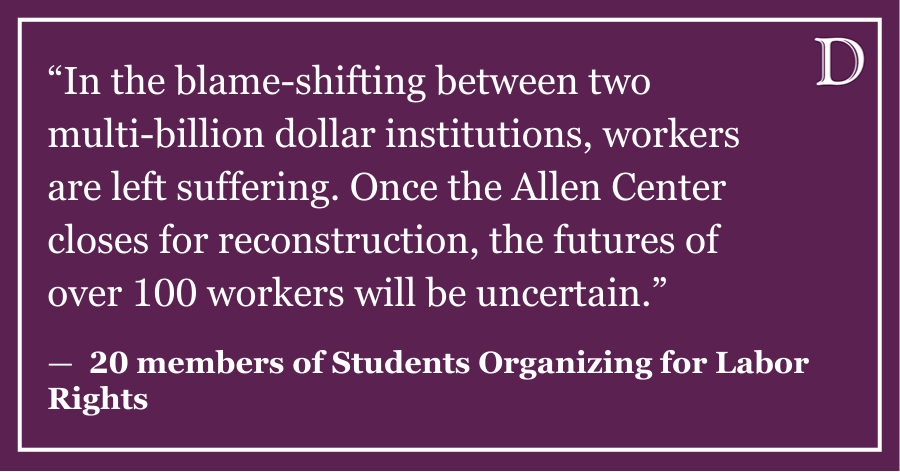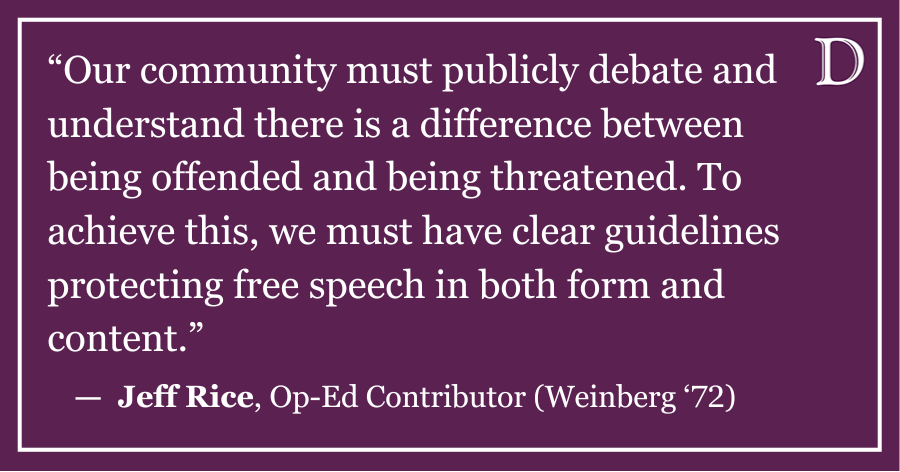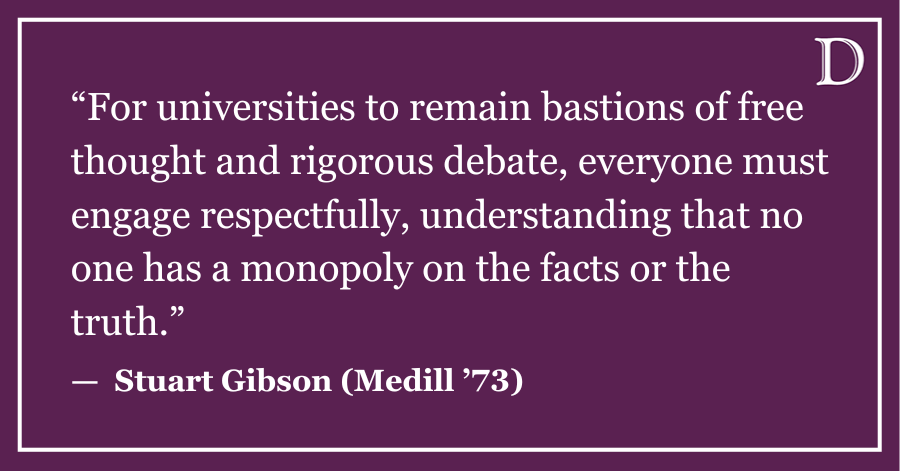On May 22, Northwestern student Eli Kronenberg published an opinion piece in The Daily speaking on Qatar and Gulf politics. The piece described the supposed rationale behind NU’s campus in Doha and the threat it poses to the University. However, as a Medill student at Northwestern Qatar, I think Kronenberg’s op-ed lacks crucial context and does not reflect Qatar or NU-Q accurately.
The subjects addressed by Kronenberg are at the core of my daily life throughout the University. The political and cultural intricacies of an American campus in the MENA region do not go unnoticed by Wildcats in Doha but are rather a subject of study, debate and inquiry.
As I speak on the NU-Q campus, I acknowledge the complexities and limitations of political systems in both Qatar and the U.S. I am privileged enough to have lived and studied in both countries, and I want to speak from experience on the ideological path that education takes at NU-Q.
To do so, however, I must highlight the lack of relevant context and correct facts published in Kronenberg’s piece. As Medill students, we know it is the role of journalists to foster truth in practice.
Firstly, Kronenberg states the misleading figure of 6,500 migrant workers who died in the 10 years ahead of the 2022 World Cup in Qatar. The number — initially sourced and published by The Guardian — has been a case study of misinformation in classes at NU-Q. The news has been debunked and labeled as misleading by many experts and news outlets like Germany’s Deutsche Welle.
The Guardian’s figure was sourced from the sum of total deaths, of any cause, across the 10 years ahead of the World Cup of citizens of Bangladesh, India, Nepal, Pakistan and Sri Lanka, who make up a significant portion of the unskilled worker population in Qatar. In this context, the term “migrant workers” Kronenberg uses simply refers to any person from the above countries who lives and works in Qatar, regardless of profession or social status.
Another mischaracterization is that students at NU-Q may be “coerced” into working for the Qatari government if unable to pay student loans.
The loan agreement with Qatar Foundation is an interest-free contract that is binding for up to six years. Graduates who do not work for companies partnered with QF will contribute up to 15% of their monthly income towards their repayment. Students who pursue graduate studies can use their parents, guardians or spouses as guarantors and will be subjected to the same 15% payment cap. After six years, regardless of how much has been repaid, students are forgiven for the remaining amount and do not have to make any additional payments to QF.
The allegation that students would be coerced into working for the Qatari government is speculative. Public sector jobs in Qatar are highly competitive. Graduates who pursue careers in these jobs undergo rigorous selection processes, and the limited spots available are highly sought-after for the high salaries and benefits they offer. Many NU-Q graduates, as with any graduates in Qatar who work for the public sector, deliberately choose to pursue those.
The allegation that “around 90% of the population is made up of non-citizens, who have no political rights” also lacks significant context.
The population of Qatar includes a significant number of U.S. citizens — including over 10,000 U.S. military service members at Al Udeid, the largest U.S. military base in the Middle East — who have the same political rights as expatriates in most countries. When it comes to the right to vote and participate in decision-making in politics, work visa holders and permanent residents in the U.S. are under a comparable set of rules. That non-citizens have fewer rights than citizens is an unremarkable, standard practice in most countries.
The idea that Qatar’s funding of Hamas was an attempt to support terrorism has also been repeatedly debunked. Qatar contributes humanitarian assistance to Gaza in coordination with the Israeli government. This assistance includes funding fuel purchases from Israel for a Gaza power station as well as a project administered by the United Nations’ World Food Programme to give $100 per month to Gaza’s poorest families.
A recent investigative piece by Mark Mazzetti and Ronen Bergman in The New York Times reveals that the Qatar policy was supported by Israeli Prime Minister Benjamin Netanyahu and the administrations of three American presidents — Barack Obama, Donald Trump and Joe Biden — in efforts to support an “equilibrium” in the Gaza Strip.
In 2022, the importance of the relationship between the U.S. and Qatar was evidenced by President Biden designating Qatar a major-non NATO ally for its assistance in the American evacuation from Afghanistan.
A project like NU-Q should not only exist because it “spreads teachings,” but because it allows for NU to foster a truly global educational path.
I am grateful to study at NU-Q not only because of financial incentives and the chance to earn an American diploma but also for the opportunity to immerse myself in a student body where perspectives from over 50 countries build an academic foundation of curiosity and excellence.
During the past three years, I have had opportunities to discuss different perspectives on the political and moral values of the Gulf region in my classes. I have participated openly and actively in debates on feminism, media freedom, LGBTQ+ rights, religious intolerance, authoritarianism and Gulf Cooperation Council politics. I have taken classes such as “Gender and Media,” “Digital Authoritarianism” and “Ways of Knowing” which feature some of these topics at the core of their focus.
Professors at NU-Q have published widely on the subjects as well, from interviews with LGBTQ+ Qataris to research projects on gender identity, reports on information issues in the Gulf and beyond. Classes taught in the Fall 2024 semester include “Common Law and Religion in the Middle East,” “Media and Public Diplomacy” and “Gender, Race, and Colonialism” — taught by a female Qatari Professor.
At every opportunity where difficult questions arise, I have found the community at NU-Q ready to embrace healthy, respectful and open conversations. Contrasting opinions to the local culture are often offered and always welcomed — granted that they respect the existence of all members of our community. These are also frequently challenged with incredibly rich counterarguments that generate fruitful debates.
The level of understanding and pursuit of knowledge I have found at NU-Q is beyond what I could have ever imagined, and it is necessary to foster such a diverse, contrasting community. The depth of excellence inspired by an education that is truly global is something that I feel incredibly lucky to experience.
NU-Q provides quality education to students from across the globe who would not otherwise be able to access such. It also enables an American university to expand its horizons beyond the enclosed political and moral bubble of the U.S.
It is true that, like many universities across the globe, our institution has its many issues. I offered a glimpse into those in a recent interview with The Daily. However, establishing a global dialogue requires a thorough examination of one’s biases and predispositions, and, in this case, knowing a full picture of the NU campus in Doha is an important part of the process.
As we, NU students, know, “opinion” should not negate the importance of truth and fact-checking. It saddens me to see such a poorly researched piece written by a Wildcat, and that a fellow student would advocate for the dismantling of a global educational project based on superficial research.
Maria Clara Lisboa-Ward is a rising Medill Senior at Northwestern’s campus in Doha, Qatar. She can be contacted at [email protected]. If you would like to respond publicly to this op-ed, send a Letter to the Editor to [email protected]. The views expressed in this piece do not necessarily reflect the views of all staff members of The Daily Northwestern.






